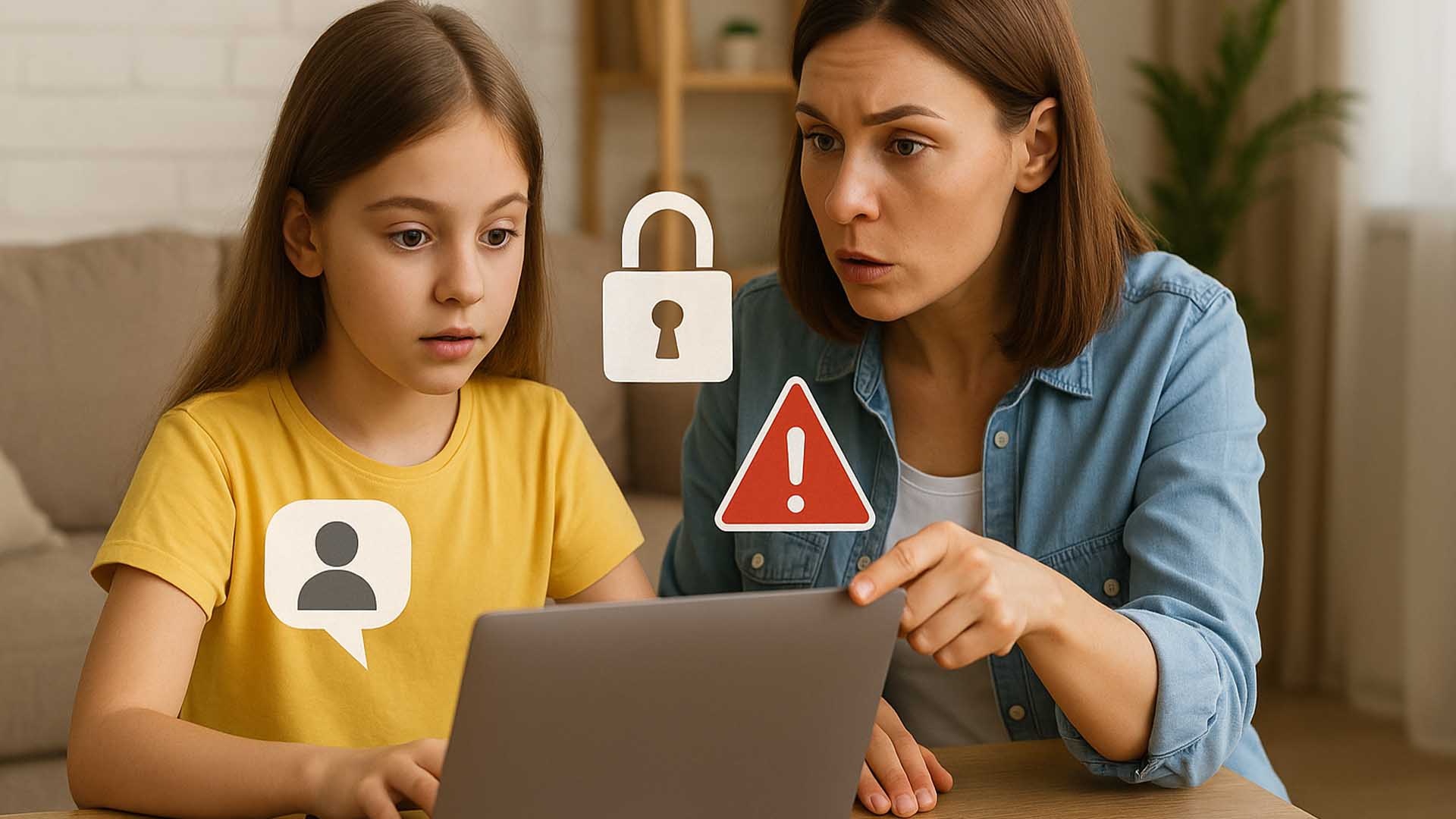The internet is a wonderful place filled with opportunities for learning, playing, and connecting. From discovering new facts about dinosaurs to video chatting with grandparents, the digital world offers endless adventures. However, just like exploring a new park, it’s important to know how to stay safe. This guide will help young explorers and their parents navigate the online world responsibly, ensuring a fun and secure experience.
Staying Safe Online: Essential Rules for Kids
Rule 1: Keep Personal Information Private
Never share your full name, home address, school name, phone number, or photos of yourself without asking a trusted adult first. Think of your personal information like your secret superpower – it’s meant to be kept safe! Websites and games might ask for this information, but it’s crucial to always check with a parent or guardian before sharing anything.
Rule 2: Ask Before You Click or Download
Sometimes, exciting pop-ups or links might appear. It’s always best to ask a parent or guardian before clicking on them or downloading anything new. Some links can lead to unsafe places, and downloads can sometimes bring unwanted surprises to your computer. When in doubt, ask it out!
Rule 3: Be Kind and Respectful Online
The internet is a community, and just like in real life, it’s important to be kind to everyone. Cyberbullying is never okay. If someone is being mean or making you feel uncomfortable, tell a trusted adult immediately. Remember the golden rule: treat others online as you would like to be treated.
Rule 4: Create Strong Passwords
Your passwords are like the keys to your online treasures. Make them strong by using a mix of uppercase and lowercase letters, numbers, and symbols. Never share your passwords with anyone, except your parents. Change them regularly to keep your accounts extra secure.
Rule 5: Tell a Trusted Adult if Something Feels Wrong
If anything online makes you feel scared, uncomfortable, or confused, tell a parent, teacher, or another trusted adult right away. They are there to help you and will know what to do. It’s brave to speak up when you need help!
For Parents: Guiding Your Child Through the Digital World
Set Clear Ground Rules and Boundaries
Establish clear rules about screen time, appropriate websites, and online behavior. Discuss these rules with your children so they understand the expectations. Consider creating a family media plan together.
Use Parental Controls and Privacy Settings
Utilize parental control features available on devices, browsers, and apps. Review and adjust privacy settings on social media platforms and online games to limit the information your child shares publicly.
Engage and Educate
Spend time online with your children. Play games together, explore educational websites, and discuss what they are doing online. This helps you understand their digital world and provides opportunities to teach them about online safety in real-time. Educate them about the potential risks, such as cyberbullying, online predators, and misinformation.
Model Healthy Online Habits
Children learn by example. Demonstrate responsible online behavior, including managing screen time, being respectful in online interactions, and protecting your own privacy. Show them how to critically evaluate information and recognize reliable sources.
Foster Open Communication
Create an environment where your child feels comfortable discussing their online experiences, both positive and negative. Reassure them that they can come to you with any concerns without fear of punishment. Regular conversations are key to building trust and ensuring their safety.
Q&A: Your Online Safety Questions Answered
Q1: What should I do if someone asks for my personal information online?
A1: Always tell a trusted adult (like a parent or guardian) immediately. Never give out your personal information without their permission.
Q2: How can I tell if a website is safe?
A2: Look for a padlock symbol in the web address bar (it means the site is secure). Also, ask a trusted adult if you’re unsure about a website.
Q3: What is cyberbullying and what should I do if it happens to me?
A3: Cyberbullying is when someone is mean or hurtful to you online. If it happens, tell a trusted adult right away. Don’t respond to the bully.
Q4: Why are strong passwords important?
A4: Strong passwords protect your online accounts from unauthorized access, like a strong lock on a door. They keep your information safe.
Q5: Is it okay to talk to strangers online?
A5: It’s generally best not to talk to strangers online. If someone you don’t know tries to talk to you, tell a trusted adult.
Sources
- UNICEF Parenting: How to keep your child safe online
- The Annie E. Casey Foundation: Internet Safety for Kids
- Common Sense Education: 23 Great Lesson Plans for Internet Safety
- FBI Safe Online Surfing (SOS)
- Google: Be Internet Awesome








0 Comments